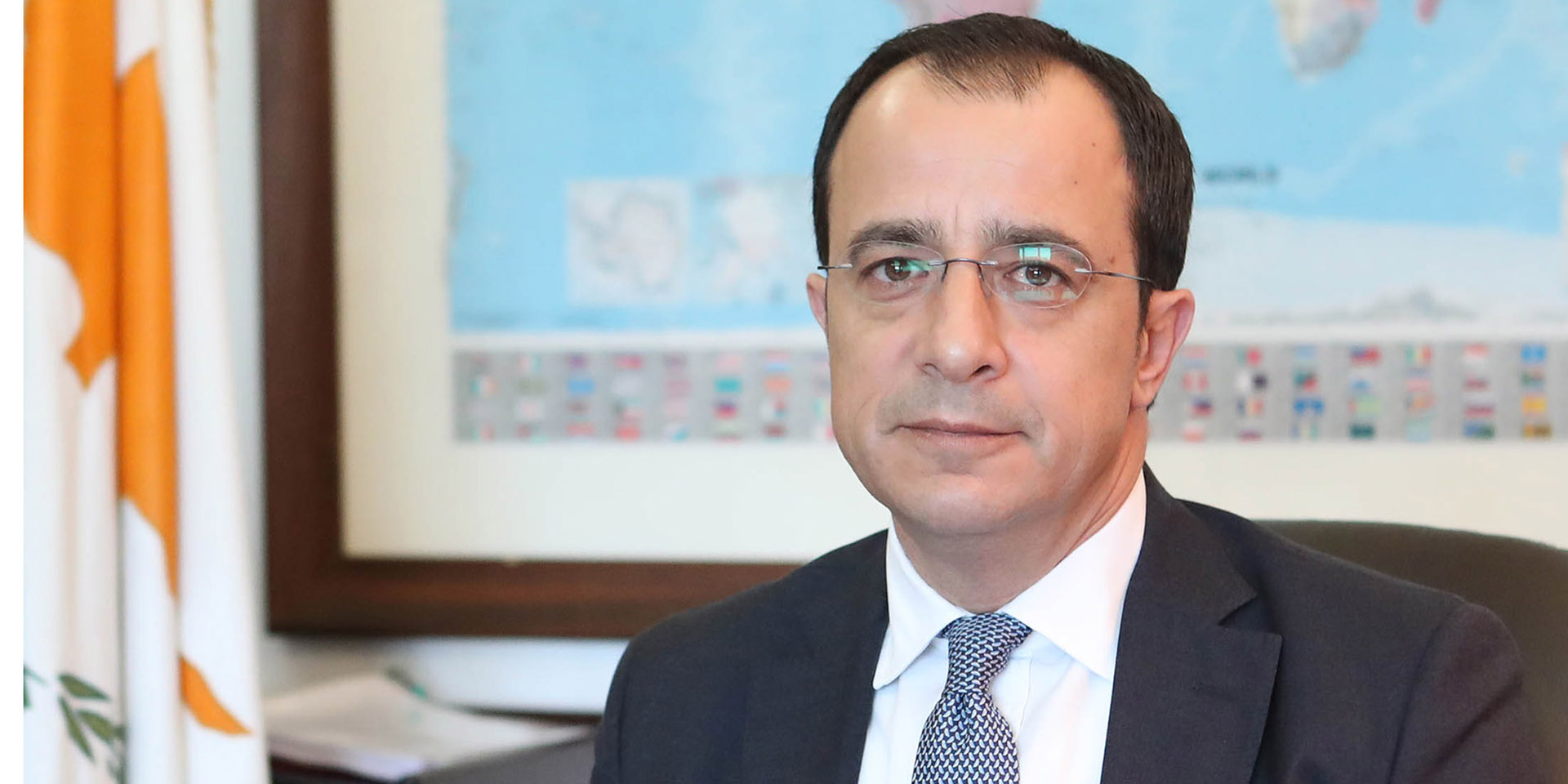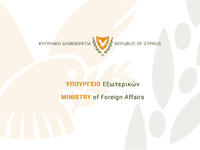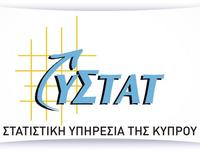Press Releases

19-10-2018 12:22
Address by the Minister of Foreign Affairs, Mr Nikos Christodoulides, at the 9th Limassol Economic Forum
“The migration crisis: Europe’s political vision and how the crisis affects south Eastern Mediterranean and the Middle East”
It is a great pleasure to be part of today’s discussion, as the 9th Limassol Economic Forum kicks off.
At a time of paradigm shifts in international relations, in world economy and trade, that few thought imaginable even a few months back, when multilateralism and rule-based international order is challenged, today’s inter-disciplinary dialogue between political, economic, business and academic leaders assumes even greater importance.
With this opportunity I would like to express my sincerest congratulations to the organizers of these annual fora; the fact that this is the 9th consecutive year it takes place, and the anticipation with which stakeholders await for these interactions, speak volume to their added value, and to the fact that they have become an institution.
In many ways, the lifespan of the Limassol Economic Forum has coincided, or has ran parallel to many of the deep challenges that Europe, and the world, face today. From the economic crisis, to the humanitarian migration crisis, that started approximately 8 years ago, and which has shaken Europe – and the European Union’s cohesion and unity – to its core. And this year it coincides with the developments for the exit of the United Kingdom from the European Union.
My presentation today concerns the migration crisis, which has exposed but also has widened the cracks in the Union’s cohesion; a crisis that is first and foremost a humanitarian one but which has inevitably evolved into a political one.
I will aim to unravel the subject at hand in the following manner:
- To start with by looking at how the crisis started and developed, as well as its impact, including on Cyprus;
- By taking a closer look at how the European Union has responded;
- By making the argument that this unprecedented crisis could be a breeding ground for creating new grounds for cohesion for the European Union – for a new vision – including in the region of the Eastern Mediterranean, which is where the root causes for the migration crisis are found;
- And finally by outlining Cyprus’s vision - through the lens of the humanitarian migration crisis – for the Union and for its region, the Eastern Mediterranean, which we consider the EU needs to be taking a closer look at in order to effectively address challenges at home.
Dear friends,
The origins of the humanitarian crisis are found in the war that erupted in Syria in 2011, which marked the beginning of increased migratory flows towards Europe. The flow of Syrian refugees to neighbouring countries began in April 2011, and in May 2011 Syrian refugees began fleeing to Lebanon. Over the summer the flows extended to Jordan and Turkey, and as the fighting intensified, so did the exodus.
Since then an estimated 11 million Syrians have fled their homes since the outbreak of the civil war in March 2011. According to the United Nations High Commissioner for Refugees (UNHCR), 4.8 million have fled to Turkey, Lebanon, Jordan, Egypt and Iraq, and 6.6 million are internally displaced within Syria. Meanwhile about one million have requested asylum to Europe. Germany, with more than 300.000 cumulated applications, and Sweden with 100.000, are EU’s top receiving countries. The migratory pressures from Syria reached their peak in Europe in 2015 resulting in the near collapse of asylum national systems, particularly in Greece and Italy.
The scale and the nature of the crisis, its deep socio-economic and demographic impact and the strong impact it had in internal social and political dynamics in member states – including the rise of nationalism and ultra-right wing parties in Europe - meant the EU had to act.
After a period of continuous, intense meetings at Ministerial and Head of State level the two decisions of emergency relocations from Greece and Italy were adopted according to which 160.000 people would be relocated from these two member states to the rest of the member states by the end of 2017. The Decisions provoked the fierce reaction of some member states who challenged the binding nature of the Decision in European Court of Justice, with the Court upholding the Decisions.
In 2015 a Resolution for resettlement was also adopted, according to which member states were expected to resettle, by the end of 2017, 20.000 beneficiaries of international protection from third countries neighboring Syria. The programme proved to be more successful than the Relocation Decisions and the target number of 22, 500 was reached. Subsequently the programme was extended until 2019 for another 50,000 persons.
The EU has also looked to international cooperation and multilateralism to address the migration crisis, working with the UN on the Global Compact for safe, regular and orderly migration and the UN compact on refugees. It has worked with the African Union and in 2015, the EU African relations gained a new impetus with the agreement of the Valetta Roadmap agreed by the Head of States and African countries in Malta. The Roadmap covers 5 areas: addressing the root causes of irregular migration and forced displacement; enhancing cooperation on legal migration and mobility; reinforcing the protection of migrants and asylum seekers; preventing and fighting irregular migration, migrant smuggling and trafficking in human beings, and working more closely to improve cooperation on return, readmission and reintegration. The Valetta process marked a new type of cooperation between the EU and African States based on equal partnership and shared responsibility.
At the same time, internally, the EU started the process of re-negotiation of the Asylum package in order to reform the Common European Asylum System. The most important legislative act of the package is the Dublin Regulation, on which disagreements remain until today, particularly between the front line member states and the Visegrad group, regarding the establishment of a relocation mechanism between member states that will be based on a distribution key reflecting integration capacities of each member state.
In 2016 it became clear to the EU that the unsustainable migratory flows, consisting mainly of Syrians departing from Turkey to Greece (and later to other member states, mainly Germany) could not be tackled without the cooperation of Turkey. The outcome was the EU-Turkey Statement on Migration, an arrangement that does not have the status of a legally binding international agreement, but according to which Turkey is expected to prevent irregular migratory flows towards the EU and prevent new migratory routes from emerging in exchange of financial assistance. Though this arrangement led to some decrease of migratory flows from Turkey to Greece, recent data is not positive - in 2018 it was registered a 72% increase compared with the numbers of 2017. At the same time, Turkey refuses to implement the statement vis a vis the Republic of Cyprus, despite calls by the EU.
So where do things stand presently?
Internally the Dublin Regulation is still open, with the mandatory relocation mechanism still opposed. Since this past June the emphasis is on the measures that will combat illegal migration and networks of smugglers and traffickers, enhance returns and improve the management and control of the external borders. In the context of the external dimension of migration, the concept of disembarkation platforms is promoted, according to which people that are saved in search and rescue operations will be disembarked in third countries where the beneficiaries of international protection will have a chance to be resettled to member states and economic migrants will have to be returned to their countries. The concept is still unclear and important legal and political issues remain unresolved.
Cyprus, a member state of the European Union at the heart of the where the root causes of the migration crisis are, has advocated from the very beginning for a holistic approach that strikes an effective balance between responsibility and solidarity, and fair responsibility-sharing among Member States, analogous to their integration capacities. We have strongly made the case for the need to find a fair, sustainable and effective European solution to this common challenge we are faced with. Cyprus has also raised the flag within the EU on the need to be vigilant regarding all migratory routes.
Within this framework, Cyprus has fulfilled our relocation obligations in accordance with the 2015 Council Decisions, and never abstained from any solidarity measure put forward by the Commission. This is despite the very complex challenges that Cyprus is faced with, as an EU member state at the heart of the hotspot area, with no effective control of part of its territory and its northern external sea borders, due to Turkish military occupation, and with the presence of Turkish settlers in the occupied areas already creating serious demographic changes.
Furthermore, Cyprus is providing financial assistance to Jordan and Lebanon to support their efforts regarding the reception of Syrian refugees, and has contributed with the amount of 100.000 euro to the EU Trust Fund for Africa.
At the same time, Cyprus is striving to respond to the serious challenges posed by the steep growth in numbers of asylum applications. The first 8 months of 2018 there was a 55% increase in asylum applications compared with the same period in 2017, whilst in 2017 there was a 56% increase compared to 2016. The majority of the arrivals originate from Turkey, despite its’ obligation, according to the EU-Statement, to deter irregular migratory flows towards the EU and stop new routes from emerging. Recently we have registered increase on the irregular flows from neighbouring countries. The situation is further complicated by the fact that Turkey refuses to cooperate with Cypriot authorities, not implementing vis a vis Cyprus, the EU-Turkey Readmission agreement. We have stressed the importance of the EU applying the necessary political pressure towards Turkey, given its role to managing migratory flows, in particular with a view to Turkey fulfilling all of its obligations in a non-discriminatory manner.
Dear friends,
Cyprus’s basic premise in effectively tackling the humanitarian migration crisis is that the EU must look to the root causes of the crisis and address those, and that a key component in doing so is to engage more actively in the Eastern Mediterranean. Cyprus adamantly believes that the current challenging juncture in the European Union’s long and admirable history, must force us to reinvent, and to look for new grounds to breed cohesion; our argument is that the Eastern Mediterranean is one such ground.
We have consistently made the case in Brussels that unless we effectively address the root causes of the migration crisis, unless Europe becomes an active political actor in the Eastern Mediterranean - in Syria, Lebanon, in the Middle East Peace Process – we will not be able to effectively tackle the migration crisis in Europe. The same goes to other serious challenges we face at home, in Europe, such as the spread of violent extremism. We must look for answers where these challenges breed, and we believe that Cyprus, a member state of the Union and at the same time a country of the region and with excellent bilateral relations with its neighbours and a deep understanding of the dynamic of the region, can play a catalytic role in this direction.
In fact, in the last 5 years, Cyprus has exerted enormous efforts in making the case for the Eastern Mediterranean – for the EU to be a more active actor in addressing its challenges and also in helping it reach its enormous potential. We have done so in two ways: in implementing two core pillars of our foreign policy – firstly, enhancing our historically close relations with the countries of the region, and creating a web of cooperation that creates the ground for regional security, stability and prosperity, and secondly, by being an active voice in the European Union, including by presenting the region’s perspective within the EU, and active as a bridge between the region.
With regards to the first pillar, of enhancement of relations with our Middle East and Gulf neighbours, we have built on the traditionally excellent relations with our neighbours, and have worked methodically in deepening our ties, and building cooperation that yields specific results that are beneficial not only for the countries involved but also for the region and for the Union. Within the first month of assuming office I visited Israel, Egypt, Lebanon, Jordan, as well as Saudi Arabia and the United Arab Emirates. Visits have been planned in the coming months to Kuwait, Bahrein and Oman.
Beyond the bilateral value of this effort, our actions are also underpinned by a long term vision for our region, that we believe is relevant not only for the region and its countries but also for Europe; at a time of shifting of powers in the region we see significant added value in increasing EU involvement in the Eastern Mediterranean. We believe our vision for the Eastern Mediterranean is relevant because the region is highly relevant – both because of its challenges but also due to its potential. We are investing political and diplomatic capital in the region because we believe in the region’s increasing geostrategic importance, which relates not only to its challenges but also to the promises it holds.
Cyprus has also exerted considerable efforts in amplifying its role as an anchor of stability in the region, in a way that benefits not only countries of the region but also the Union. The innovative trilateral cooperation mechanisms we have built with Greece and others in the region - such as Israel, Egypt, Jordan, Lebanon - are a manifestation of our strategy to create synergies and forge closer cooperation with moderate countries of the region in a broad range of areas: from political and economic cooperation to security, culture, innovation and education. The discovery of significant hydrocarbon reserves in the region was catalytic to the creation of these mechanisms; our vision is that hydrocarbons can become the new coal and steel, in a new regional context. A tool of cooperation and synergies that could contribute significantly towards meeting the energy security needs of the region and that of the EU and gradually contribute to greater stability in relations among countries of the region and promote security and peace.
Another example of how Cyprus is acting as an anchor of stability is our active role in the area of regional security and countering terrorism. For Cyprus this is a collaborative, multilateral effort. To this effect, Cyprus is an active member of a number of international efforts, including the Coalition Against the Islamic State, and the Aqaba Process. We have actively, and in cooperation with some of our European allies, provided military assistance, and also provided non- military support to the EU efforts in the Sahel. We are also working closely with other, non-European partners, mainly with the United States. We cooperate with the US in providing specialized, mostly civilian type expertise, be it customs or border control being able to identify and contain certain chemicals, better storage and handling. These are considered to be highly important in the focus that is being directed against the transfer of illegal and usually non-conventional substances that could be used to create havoc.
In fact, Cyprus actively contributed to the collective efforts of the international community for the destruction of the Syrian chemical weapons arsenal, following UN Security Council Resolution 2118, servicing as the host country of the support base of the Organization for the Prohibition of Chemical Weapons-UN Joint Mission, and offering its infrastructure and facilities to other States which participated in the multilateral mission.
Cyprus also facilitates the deployment of United Nations Interim Force in Lebanon (UNIFIL) by hosting UNIFIL’s Maritime Task Force whose primary task is the preservation of peace and security of the shores of Lebanon in a highly volatile region. At the same time, Cyprus supports Lebanon’s efforts to confront the immense challenges is faced with, among others, through a productive military bilateral cooperation. In this regard, since 2015, Cyprus has donated arms and ammunition worth to the Lebanese Armed Forces and has offered technical assistance and training to its officers in the context of supporting Lebanon's sovereignty, stability, security and its state institutions. As I mentioned before, Cyprus has also contributed financially through the European Union to Lebanon and Jordan to contribute to their efforts to address the refugee crisis in these countries.
At the same time, we have worked on the implementation of the second pillar of our foreign policy, which is a more active involvement of Cyprus within the EU, beyond issues that directly touch upon the Cyprus problem. We have worked methodically to build our voice in Brussels on an array of issues where Cyprus has a strong added value.
Take for example issues relating to our region; Syria is only 98 kilometers from Cyprus, Lebanon 150 kilometers, Israel less than 250 kilometers and Egypt less than 350 kilometers. Cyprus has a deep understanding of the way countries in the region operate, how to get messages across effectively. Countries in the region often react to what they see as a lack of understanding by the EU of the complexities of the region and the dynamics within their countries. Cyprus is seen as a credible, trustworthy, reliable channel of communication between the EU and countries in the region, and this is being increasingly recognized. Recently for example I made the case at the Foreign Affairs Council on the need for the EU to more actively and concretely support Jordan, in order to safeguard its stability which is important for the Union and the region.
Dear friends,
Ladies and gentlemen,
At times when international relations are becoming more introvert, Europe must become more extrovert, build more partnerships and synergies, diversify, and in doing so, our argument goes, it is crucial that it pays closer attention to the Eastern Mediterranean.
To the deep and complex challenges we face, Cyprus strongly believes that the answer is more Europe, a stronger Europe with a more robust footing in international relations. We must look back to the core of the values that bind our Union together and project it outwards. At the same time, our messaging within the EU in addressing not only the migration crisis, but also other crises our Union faces, always has as a common denominator the need to preserve EU unity, solidarity and burden-sharing.
As a concluding remark I will say this: The Union’s history and evolution has been about removing borders and walls and about solidarity. The answer to today’s challenges lies in this core characteristic of Europe’s history.
Thank you.
(ML)
Relevant Press Releases

15-04-2024 14:04
The Ambassador of Cyprus to South Sudan presented her credentials

14-04-2024 12:45
Statements by the President of the Republic


12-04-2024 13:33
Monthly Economic Indicators: January–February 2024



